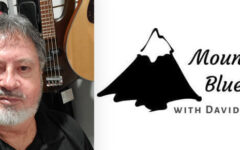 Hal Ponder, the Legislative Director for the American Federation of Musicians (AFM), circulated a message by email yesterday to the union membership with regard to the brewing controversy over the recent Copyright Royalty Board rate structure.
Hal Ponder, the Legislative Director for the American Federation of Musicians (AFM), circulated a message by email yesterday to the union membership with regard to the brewing controversy over the recent Copyright Royalty Board rate structure.
It presents the union’s take on the rate increase, which it describes as “pro-musician,” and urges its membership to be vocal in response to the challenge coming from NPR and other sources.
A recent pro-musician decision of the Copyright Royalty Board has sparked a lot of adverse press. Even worse, webcasters and broadcasters have instigated a “grass-roots” campaign urging music fans to complain to Congress about the decision. The purpose of this e-mail is to make sure that musicians are informed about the facts – and to ask you to send your own pro-musician message to your representatives in Washington!
The Background. The Copyright Act requires webcasters and broadcasters to pay royalties when they stream sound recordings on the internet. By law, 50% of the royalties for streaming go to performers. SoundExchange collects the royalties and pays 45% of them directly to individual featured performers. SoundExchange pays 5% (the share set by statute) to the AFM and AFTRA Fund for distribution to session musicians and vocalists. The remaining 50% goes to the sound recording copyright owner – which is usually a record label but in some cases is also the performer.
The Decision. The judges heard 48 days of testimony and reviewed thousands of pages of evidence about the webcasting business and about the businesses of performers and record labels. AFM Vice President Harold Bradley and member Cathy Fink testified about the creative work musicians do in the recording process, and about how important this new income stream is to musicians. President Tom Lee testified about the ways SoundExchange works for musicians. And then the judges carefully considered all they had heard – and got it right. They wrote a careful, 115-page decision that acknowledged the value of musicians’ creative work and the importance of fairly compensating us when businesses use our product.
The Webcaster Backlash. Although the webcasters and broadcasters presented a complex and detailed case to the judges – and although the hearing process is one that they asked Congress to create – some don’t like the result and are seeking a Congressional override. This makes no sense. What is worse is that large (and wealthy) webcasters like AOL and Yahoo are hiding behind a few small webcasters who complain that as “small businesses,” they can-t afford to pay the royalties. Webcasters made similar complaints the last time rates were set in 2002 – and since then, webcaster revenues overall have jumped from $50 million to $500 million per year.
Performers Need to Be Paid for Use of Our Work. Most musicians need to patch together lots of income streams in order survive – including royalties for the use of our recordings. Please let Congress know how important this money is to musicians! Urge your representatives to resist the pressure to override the rates set by the CRB.







